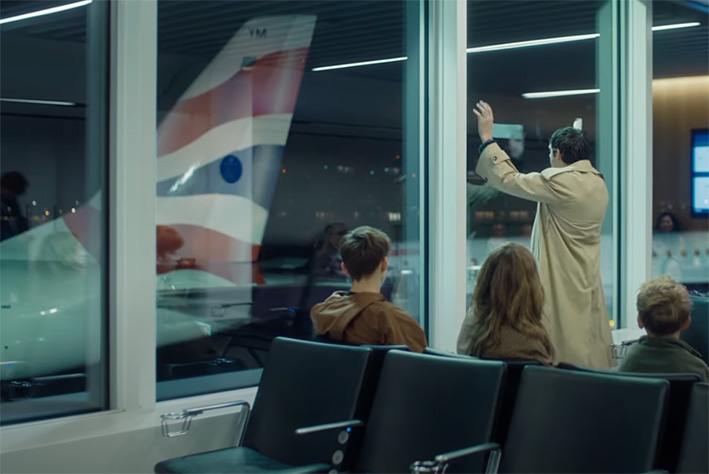AI could be the travel sector’s greatest inflection point

Opinion
Looking at the evolution of brand marketing and media planning by vertical, UM’s Dan Chapman explores how AI will transform every stage of the consumer journey and why brand essence matters in this new era.
Every 20 years, the travel industry experiences a seismic shift — a moment when the balance of power tilts, forcing brands to rethink how they engage customers.
Historically, these shifts have resulted in airlines and travel suppliers losing a degree of control over their customer relationships. Today, we stand at another such juncture.
Over the next three years, travel brands will have a rare opportunity to reclaim ground lost to intermediaries, particularly online travel agents (OTAs). Why? Because generative AI is poised to redefine the consumer journey.
For decades, OTAs have owned the pathway from inspiration to booking. Now, AI has the potential to usurp that role, offering a more intuitive, personalised and direct consumer experience.
While OTAs will inevitably integrate generative AI, they operate at an aggregated level, serving a broad base rather than specialising. Travel suppliers, with their deep-rooted brand identities and proprietary data, have the edge — if they act now.
From the 1980s to today: 3 key inflection points
The past four decades illustrate a pattern of technological disruptions that reshaped the travel landscape.
1980s — the rise of computerisation: With the advent of computerised reservation systems like Sabre and Amadeus, travel agents became more efficient, but airlines ceded direct control over customers. Automated pricing fuelled competition, making it easier for consumers to compare fares while eroding airline-led customer relationships.
2000s — the digital takeover: The expansion of OTAs and metasearch engines deepened the disintermediation of airlines. With pricing power diluted and loyalty undermined, air travel became a commodity — a mere transaction on a screen. Digital brokers claimed a 30% share of direct sales almost overnight, prioritising efficiency but diluting brand experience.
2020s — AI as the new gatekeeper: Two decades after digital intermediaries disrupted the industry, a new force is poised to do the same: AI. Unlike its predecessors, AI does not merely facilitate transactions — it influences every stage of the journey, from inspiration and research to booking and post-trip engagement.
This shift will be profound, fundamentally altering how consumers interact with travel brands.
AI as an always-on consumer guide
“AI is one of the most profound things we’re working on as humanity. It’s more profound than fire or electricity.”
— Sundar Pichai, CEO, Alphabet
Consumer behaviour is no longer dictated by structured booking cycles. The traditional marketing funnel is being replaced by an “always on” discovery process, where AI-powered assistants provide tailored recommendations at any moment.
As AI becomes more adept at predicting and responding to traveller preferences, intermediaries that operate purely on aggregated data will struggle to maintain relevance.
Oliver Wyman’s Leisure Traveler survey (2025–2028) suggests that airlines can reclaim a percentage of lost market share from OTAs, but only if they leverage and invest in AI strategically. Our recent research at UM showed that the key differentiator in this new landscape is a brand’s true difference: the brand’s true character.
Unlike OTAs, which rely on industry-wide data aggregation, AI thrives on specificity. It learns best from brands that offer a distinct identity, rather than homogenised services. This means success will no longer be driven by sheer efficiency but by efficacy — how well a brand asserts its unique value proposition in an AI-driven ecosystem.
Why character matters in the AI era
The future of AI-driven travel is not just about personalised recommendations; it is about brand essence.
AI is exceptional at optimising routine processes but struggles with emotional intelligence and the nuances of brand storytelling. The Massachusetts Institute of Technology, McKinsey & Company and Coca-Cola have all identified this limitation as the “middle problem” of AI, where AI excels at processing structured tasks but lacks human-like creativity at the extremities.
For travel brands, this presents both a challenge and an opportunity. Those that differentiate based on deep-seated brand character — not just generic category distinctions — will train AI in a way that optimises towards uniqueness rather than conformity.
Act like a startup, think like a legacy brand
Many established blue-chip brands fear startups, not because of their scale but because startups have a clearly defined sense of identity.
Startups possess abject clarity about their brand character because their founders are deeply connected to the business.
At the inception stage, every decision is rooted in an unshakable vision, ensuring that brand character is neither diluted nor compromised. However, as companies grow, the ambition for scale often weakens this clarity, creating a disconnect between what the brand is and how it is perceived.
Ironically, large brands that seem robust from the outside often lack this internal clarity. Pre-AI, this gap was a minor issue. In an AI-driven marketplace, it is an existential one.
For years, “act like a startup” has been a corporate buzz phrase that fails to translate into meaningful action. However, at this inflection point, travel brands must embrace a startup mindset — not in structure but in spirit.
Specifically, brands need to act like startups in how they extol and push their brand character with the same clarity and vision that startups have.
AI will naturally optimise towards the “mean”, averaging out content and recommendations. Brands that can clearly articulate their core character will ensure that AI models learn from their difference, not just industry-wide patterns.
A call to action
The AI-driven travel industry will favour brands that define their uniqueness, rather than those that compete solely on efficiency.
By prioritising brand difference, airlines and travel suppliers can:
- Outperform OTAs by optimising AI towards their unique identity rather than aggregated market norms
- Enhance direct consumer engagement by ensuring AI-generated content reflects brand-specific values and offerings
- Build deeper loyalty by training AI to recognise and amplify the distinctive elements of their customer experience
In the next three years, travel brands have a window of opportunity. AI will only be as good as the data it is trained on — and that data must come from brands that truly understand their essence.
The industry is at an inflection point. Those that seize it will not only reclaim control but also shape the next era of travel.
 Dan Chapman is global chief strategy officer at UM
Dan Chapman is global chief strategy officer at UM




